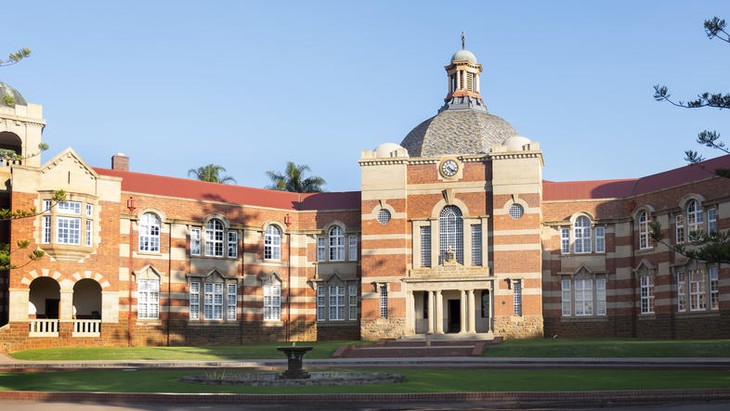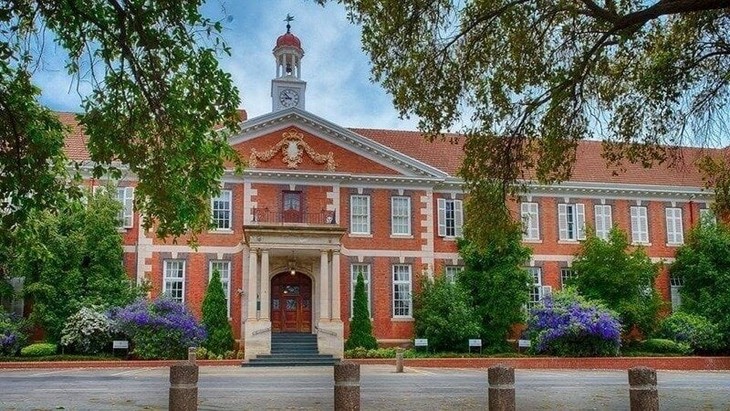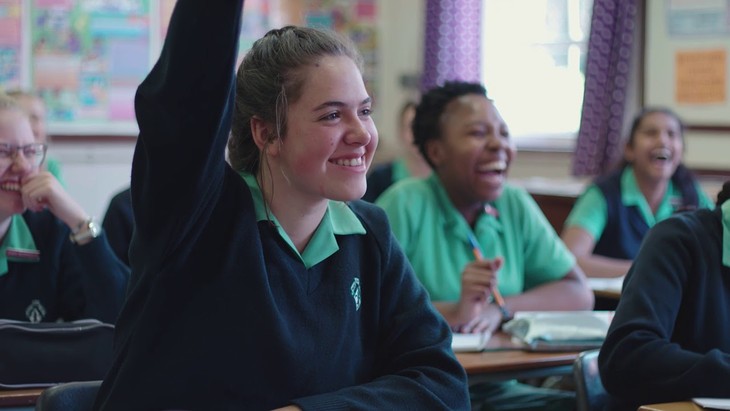(VOVWORLD) -Welcome to “Culture Rendezvous”, where we explore how people live, learn, and connect around the world. Today, we’re heading to South Africa to learn what school is like there—with the help of Ilani Ries, a linguist and teacher who grew up in the South African school system. Ilani will share her personal experience as a student at an all-girls school, and her professional perspective on what education is like in her country. From school structure to language learning, from cultural traditions to modern trends, she’ll give us a closer look at what makes schooling in South Africa unique. Let’s dive in!
Hi, Ilani, it is great to have you here with us on today’s “Culture Rendezvous”. You went to an all-girls school, which isn’t that common around the world. What was it like? I’m curious.
There used to be boys-only and girls-only schools. For many years, schools were also segregated by race. Fortunately, that's no longer the case. Today, things have changed—it's not like that anymore. However, there are still schools, probably in every city or town, that are either boys-only or girls-only. I'm not sure if that's common in other countries, but it's definitely still a thing in South Africa. I mean, I went to an all-girls school. I'm not going to say whether it was right or wrong, but I did go to one. On the one hand, it was great. On the other hand, not so much. That said, even when boys and girls attend separate schools, they usually still interact through shared activities like athletics, debate, or drama. So there's still some level of interaction—you just don't attend the same classes every day. The schools are often in separate buildings, sometimes just across the road from each other.
 The main building of Pretoria Boys' High School. (Photo: Andile Bhala) The main building of Pretoria Boys' High School. (Photo: Andile Bhala) |
What is the reason for having single-gender schools in South Africa?
I think it's because in the school system, for many years, they did. And it's true that boys and girls are different, and how they learn, potentially, is different. It wasn't because they thought women or girls, I think, were less. No, that's not why it started. It was just they thought it would be better for the students to be split up. Also, you focus more if there's not boys around or girls around. So that was the theory behind this, and it's usually the private schools. It's not a public school, usually, when it's actually two schools. So there were Boys High, Girls High, all kinds of higher end public schools, almost like private schools. They’re not your typical public school, because in South Africa you have, obviously, different types of schools. So here you've got a public school, and then you have international schools. So in South Africa, you have what we call Public School, which is your public school, and then we've got private schools. So the private schools are the ones that are very expensive but very difficult to get into. You usually have scholarships, and you have to apply for one many months in advance, years even. Those are the ones that are sought after.
 The main building of Pretoria Girls' High School. (Photo: School Facebook) The main building of Pretoria Girls' High School. (Photo: School Facebook) |
In a previous show, we learned that many languages are spoken in South Africa. But which ones are officially taught in schools?
We use a model that we call Model C, which is based on the American school system. So it's very close to the American school system, with all the same subjects, but in each school you have at least three languages. Obviously your first language is English, and then your second language probably is going to be Afrikaans. And then you can choose another language, usually one of the tribal languages. But, also, many schools are now starting Chinese in the schools. Also, some of the schools still have French and some of the schools still have Latin. So you can learn lots of different languages in school. I mean, when I went to school, I had four languages every single year. But it was funny because if you move between provinces – South Africa is mainly four provinces – if you move between them, the tribal languages change in your school. It’s Zulu in this province, but Xhoza in that province. It's very much based on where you are. By the end, you might have learned quite a few languages.
 Students at Pretoria Girls' High School. (School Facebook) Students at Pretoria Girls' High School. (School Facebook) |
Wow, it’s a big advantage to speak multiple languages. But it can be challenging for children to learn several at once. What do you think?
I don't think so, personally. It's immersive learning. You grow up with English and Afrikaans, and you have a third language, probably, in your house, so it's not difficult. I think it helps a lot with being able to teach a language in your future, because you can understand where people are coming from when they have to learn a new language. Many people are trying to teach languages, and it's better if you know what a student's going through when you're teaching them. Of course, kids have different abilities, so it might be like my nephews, who are horrible at Afrikaans. I'm very embarrassed when they speak Afrikaans. It's bad, but it's because they didn't have it at home. In South Africa, when I grew up, we made sure we used three languages almost every single day.
Thank you so much, Ilani, for sharing your insights and experiences with us. It’s been fascinating to learn about South Africa’s diverse education system. That wraps up this episode of Culture Rendezvous on VOV24/7!